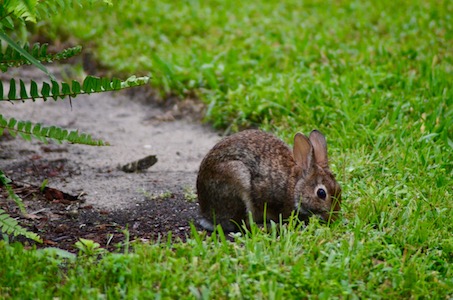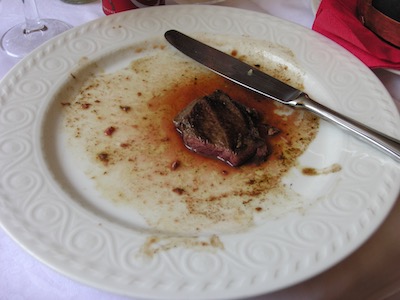
The Morality of Eating
After reading this article recommended by my brother Adam, we discussed whether all forms of eating are equally moral or immoral. Put another way, why do some consider eating a plant — a living thing — inherently more acceptable than eating an animal, also a living thing?
I was first introduced to the notion of plants and animals being equal but different when I was a kid, and “The Secret Life of Plants” was featured on one of the cable movie channels. The film was based on a book of the same name by Peter Tompkins and Christopher Bird.
There was some weird stuff in there, like a Japanese scientist who hooked up a machine to one of her plants. The contraption supposedly interpreted vibrational output from the plant, and amplified it to give it a “voice”. She was convinced that as she said letters or numbers (ichi, ni, san…) the plant was mimicking her — and it certainly sounded like it.
That (probably unscientific) oddity aside, some more salient concepts were discussed in the film as well: primarily, that biologists define something as “alive” if it is composed of cells, can grow, adapt to its environment, respond to stimuli, metabolize, and reproduce. With that definition in mind, it is scientifically undebatable that plants are alive. Therefore, when we eat them, or smoke them, or make furniture or medicine out of them, we are killing them. End of story.
This is one of the main reasons I believe I never went through a vegetarian phase. I understood from a very early age that I have to eat to survive, and that eating a plant or an animal is essentially the same in many ways.
As I got older, I noted the number of carnivores and omnivores in our world (sharks, large reptiles, birds of prey, cats and dogs of all sizes, etcetera) that hunt and eat living things (including humans) on a regular basis, totally unburdened by questions of morality or ethics.
However, I would say I didn’t formally finalize my feelings on the matter until I was in my thirties. It was somewhere in that decade I realized that unlike those other species, we humans kill much more than we need to survive, and this is what I have a problem with, even though I am also guilty of it on occasion. I try to eat leftovers until they are completely gone, especially when meat is involved.
I truly feel no guilt about eating meat, but I feel real remorse when I know I have wasted it.
Most people who have beloved pets think of them as family members. We care for our animals much as we care for our children, and we get something in return for that. Yet many, if not most, of those same people see no conflict in having a pet bird, but eating chicken; having a pet dog, but eating beef; having an aquarium, but eating seafood.
For my part, I tend to a rather lush and varied garden. At last count a few years ago, I had something like 75 different species of plants that I care for year-round on my little 1/3 of an acre corner lot in South Florida. I have to feed these plants, water them, clean up after them, train them to grow the way I want, and make sure they have all the other proper conditions for long lives. It calms me to be in my garden the way others are calmed by their cats and dogs. For my efforts, I get brilliant flowers and amazing fragrances, a full spectrum of colors, and even a variety of sounds.
But I don’t think twice about eating their fruits, vegetables, roots, seeds, and leaves.
I think no differently about animals, and I find it difficult to understand why others do.

F**k Anthony Bourdain

Bounty
You May Also Like

Bittersweet
March 1, 2018
On the New Nature of Reality
September 9, 2023